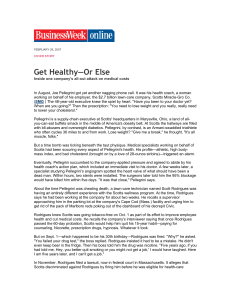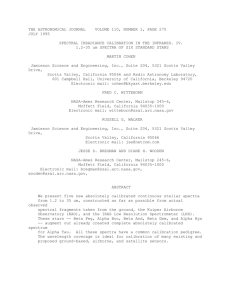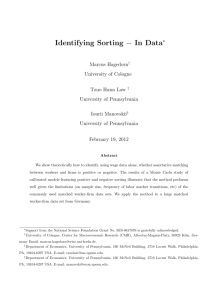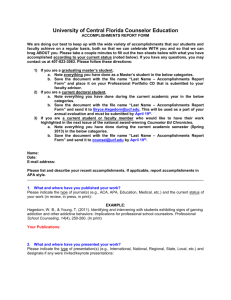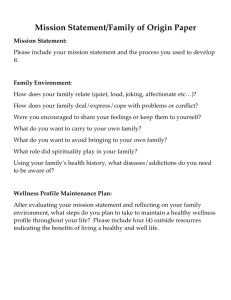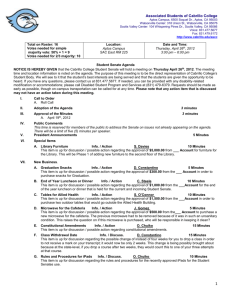Get Healthy—Or Else
advertisement
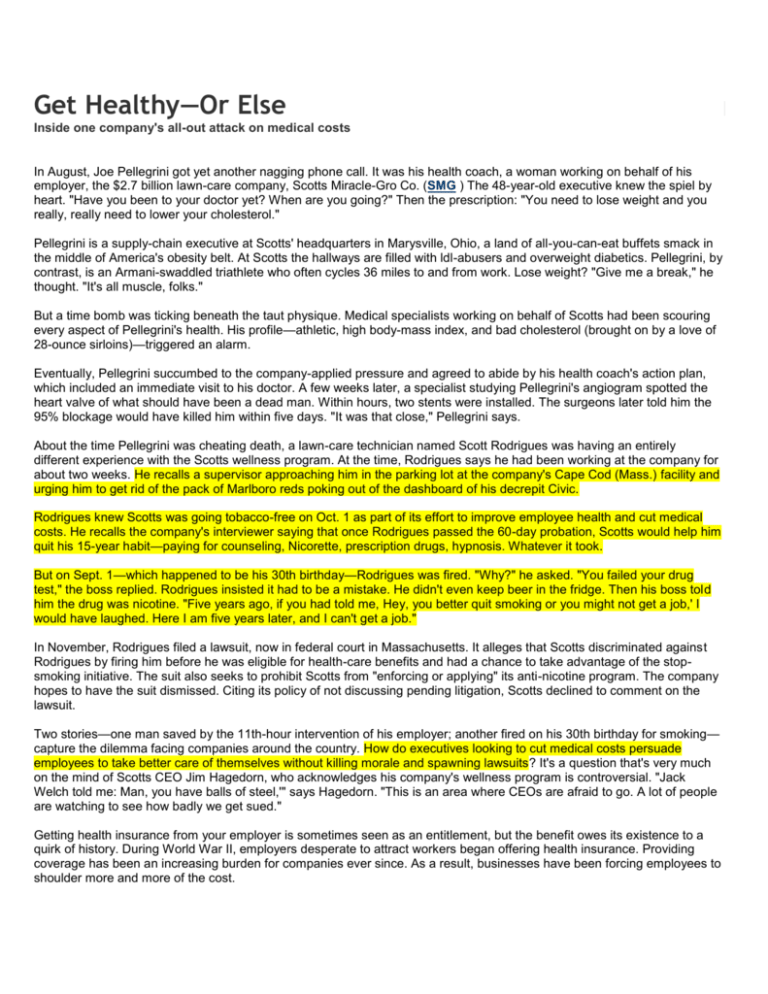
Get Healthy—Or Else Inside one company's all-out attack on medical costs In August, Joe Pellegrini got yet another nagging phone call. It was his health coach, a woman working on behalf of his employer, the $2.7 billion lawn-care company, Scotts Miracle-Gro Co. (SMG ) The 48-year-old executive knew the spiel by heart. "Have you been to your doctor yet? When are you going?" Then the prescription: "You need to lose weight and you really, really need to lower your cholesterol." Pellegrini is a supply-chain executive at Scotts' headquarters in Marysville, Ohio, a land of all-you-can-eat buffets smack in the middle of America's obesity belt. At Scotts the hallways are filled with ldl-abusers and overweight diabetics. Pellegrini, by contrast, is an Armani-swaddled triathlete who often cycles 36 miles to and from work. Lose weight? "Give me a break," he thought. "It's all muscle, folks." But a time bomb was ticking beneath the taut physique. Medical specialists working on behalf of Scotts had been scouring every aspect of Pellegrini's health. His profile—athletic, high body-mass index, and bad cholesterol (brought on by a love of 28-ounce sirloins)—triggered an alarm. Eventually, Pellegrini succumbed to the company-applied pressure and agreed to abide by his health coach's action plan, which included an immediate visit to his doctor. A few weeks later, a specialist studying Pellegrini's angiogram spotted the heart valve of what should have been a dead man. Within hours, two stents were installed. The surgeons later told him the 95% blockage would have killed him within five days. "It was that close," Pellegrini says. About the time Pellegrini was cheating death, a lawn-care technician named Scott Rodrigues was having an entirely different experience with the Scotts wellness program. At the time, Rodrigues says he had been working at the company for about two weeks. He recalls a supervisor approaching him in the parking lot at the company's Cape Cod (Mass.) facility and urging him to get rid of the pack of Marlboro reds poking out of the dashboard of his decrepit Civic. Rodrigues knew Scotts was going tobacco-free on Oct. 1 as part of its effort to improve employee health and cut medical costs. He recalls the company's interviewer saying that once Rodrigues passed the 60-day probation, Scotts would help him quit his 15-year habit—paying for counseling, Nicorette, prescription drugs, hypnosis. Whatever it took. But on Sept. 1—which happened to be his 30th birthday—Rodrigues was fired. "Why?" he asked. "You failed your drug test," the boss replied. Rodrigues insisted it had to be a mistake. He didn't even keep beer in the fridge. Then his boss told him the drug was nicotine. "Five years ago, if you had told me, Hey, you better quit smoking or you might not get a job,' I would have laughed. Here I am five years later, and I can't get a job." In November, Rodrigues filed a lawsuit, now in federal court in Massachusetts. It alleges that Scotts discriminated against Rodrigues by firing him before he was eligible for health-care benefits and had a chance to take advantage of the stopsmoking initiative. The suit also seeks to prohibit Scotts from "enforcing or applying" its anti-nicotine program. The company hopes to have the suit dismissed. Citing its policy of not discussing pending litigation, Scotts declined to comment on the lawsuit. Two stories—one man saved by the 11th-hour intervention of his employer; another fired on his 30th birthday for smoking— capture the dilemma facing companies around the country. How do executives looking to cut medical costs persuade employees to take better care of themselves without killing morale and spawning lawsuits? It's a question that's very much on the mind of Scotts CEO Jim Hagedorn, who acknowledges his company's wellness program is controversial. "Jack Welch told me: Man, you have balls of steel,'" says Hagedorn. "This is an area where CEOs are afraid to go. A lot of people are watching to see how badly we get sued." Getting health insurance from your employer is sometimes seen as an entitlement, but the benefit owes its existence to a quirk of history. During World War II, employers desperate to attract workers began offering health insurance. Providing coverage has been an increasing burden for companies ever since. As a result, businesses have been forcing employees to shoulder more and more of the cost. Some theorized that higher co-payments and pricier premiums would get people to take better care of themselves. It's not happening. "We have this notion that you can gorge on hot dogs, be in a pie-eating contest, and drink every day, and society will take care of you," says Harvard Business School Professor Michael E. Porter, who co-authored Redefining Health Care. "We can't afford to let individuals drive up costs because they're not willing to address their health problems." Hence the wellness fixation at companies as varied as IBM (IBM ), Microsoft (MSFT ), Harrah's Entertainment (HET ), and Scotts. Employees who voluntarily sign up for such programs often receive discounts on health-care premiums, free weightloss and smoking-cessation programs, gratis gym memberships, counseling for emotional problems, and prizes like vacations or points that can be redeemed for gift cards. Companies save money. Employees get healthier. What's not to like? But the wellness craze raises important issues. One is that people could start blaming unhealthy colleagues for helping push up premiums. Then there are the privacy and discrimination issues: How far should managers intrude into employees' lives? That's the essence of the Rodrigues lawsuit. U.S. business has long evinced a paternalistic streak. Early last century, Ford Motor Co. (F ) sent investigators to workers' homes to make sure their sex lives were "unblemished" and they weren't imbibing one too many. Today, Scotts is in the vanguard of companies seeking to monitor and change employee behavior. The company's outlier status reflects the bornagain zeal of its CEO. Hagedorn is a reformed nicotine addict himself. He smoked two packs a day for 20 years—until his mother, also a heavy smoker, died of lung cancer. Hagedorn quit the same day. In the early 2000s, Hagedorn, like many other CEOs, watched health-care costs explode. From what he could see, the government and the health-insurance industry weren't doing anything to solve the crisis. At the same time, Hagedorn's employees were bingeing on care. In February, 2003, Scotts doubled what workers paid for health insurance. Morale plummeted, and Hagedorn knew he had to do a better job selling the hike. Hagedorn is famous at Scotts for the "straight talk" sessions he holds with staff each quarter. A former F-16 fighter pilot who retains much of his military bravura, Hagedorn laces his sermons with salty language and unvarnished commentary. The CEO got right to the point: We were boneheaded, he told the crowd. Then again, Hagedorn wanted employees to know what he was up against. Using a PowerPoint presentation, he showed that his annual health-care bill had soared 42% since 1999, to $20 million, which amounted to 20% of the company's net profits in 2003. Costs were projected to surge about 20% that year, vs. the national average of 9%, and keep on climbing at a double-digit rate. Toward the end of the talk, a young plant worker stood up and scolded Hagedorn. "You guys on the other side of the street, you got fancy financial advisers," he said. "How can you make me responsible for managing my finances and health care and not educate me? I only have a high school education." Hagedorn left the meeting thinking: "The guy's right." A few months later, Hagedorn was watching CNN. A doctor was arguing that employers should get serious about obesity, smoking, and diabetes. Companies were paying the bills, he said, so they could do something. As it happens, Hagedorn had recently seen Scotts' health-risk assessment: Half of his 6,000 employees were overweight or morbidly obese; a quarter of them smoked. The CNN program prompted an epiphany. Hagedorn wanted to share it right away with his human resources chief, Denise Stump. It was after 11 p.m., but he called her at home anyway. "Denise," he said, "we are moving into FEBA [forward-edge battle area]." Hagedorn told her he wanted to ban smoking and go after obesity. To achieve these aims, he proposed launching the kind of companywide intervention that families use to help an addicted relative. Instituting such a policy wasn't a matter of saying, "Let it be so." Legal worried the plan might violate federal laws. Other advisers told the CEO point blank: Don't go there. And getting outside advice wasn't going to be easy. Many law firms were knee-deep in tobacco litigation and wouldn't go near Scotts' wellness initiative. Nor would board member Lynn Beasley. As chief operating officer for tobacco maker R.J. Reynolds (FAI ), Beasley saw the conflict right away and quit the Scotts board. Stump recalls thinking: "We're going too fast." Hagedorn isn't easily dissuaded. The 51-year-old CEO talks like a swaggering teenager, with "yo" this and "dude" that. A runaway at 15, Hagedorn still flies his rebel flag: A photo in his office features him giving the middle-finger salute. Needless to say, Hagedorn got his way. Scotts hired a boutique law firm. And before long, the company had determined that in 21 states, including home-base Ohio, it wasn't illegal to hire and fire people based on their smoking habits. Scotts also realized it needed to create an arm's-length relationship with the wellness program. No one wanted to give managers an opportunity to discriminate against employees based on their health. That meant bringing in a third party to run the thing. In 2005, Scotts hired Whole Health Management. The firm manages on-site primary care and fitness centers for dozens of corporations. Whole Health aggregates health and insurance claim data so Scotts can divine trends. But individual data are kept strictly confidential. Stump began selling the concept to employees. She held role-playing sessions to teach workers what to say if they bumped into each other in the clinic. On-site doctors told employees they would never betray confidences. During one of Hagedorn's straight-talk sessions, workers told him a company gym would make wellness easier to swallow. "Done," Hagedorn said. But his vision went far beyond installing some StairMasters and throwing up health pointers on the Scotts intranet. Hagedorn built a soup-to-nuts medical and fitness center across the street from headquarters. Operated by Whole Health, the 24,000-square-foot facility cost $5 million and can meet pretty much any health-related need an employee might have, including a drive-thru for free prescription drugs. The clinic employs two full-time doctors, five nurses, a dietician, counselor, and two physical therapists. A team of fitness coaches provides personal training sessions for $30 an hour. Scotts employees are now urged to take exhaustive health-risk assessments. Those who balk pay $40 a month more in premiums. Using data-mining software, Whole Health analysts scour the physical, mental, and family health histories of nearly every employee and cross-reference that information with insurance-claims data. Health coaches identify which employees are at moderate to high risk. All of them are assigned a health coach who draws up an action plan. Those who don't comply pay $67 a month on top of the $40. "We tried carrots," says Benefits Chief Pam Kuryla. "Carrots didn't work." Many employees found Hagedorn's new policy intrusive. Topic A: the health assessment questionnaires, which asked things like: Do you smoke? Drink? What did your parents die of? Do you feel down, sad, hopeless? Burned out? How is your relationship with your spouse? Your kids? Are you pregnant, diabetic, suffering from high cholesterol? The tobacco ban was controversial, too, especially at the manufacturing plants, where Skoal chewers are common. Hagedorn wasn't unsympathetic. After all, it took his own wife three years to quit smoking. Scotts employees would get all the help they needed. Workers told the CEO they were angry. Hagedorn concedes the program had Big Brother overtones. But he's adamant about bringing down health costs—even if it means being authoritarian. "If people understand the facts and still choose to smoke, it's suicidal," he says. "And we can't encourage suicidal behavior." As chief wellness salesman, Hagedorn took it upon himself to motivate employees. He walks around campus joking, slapping guts, and exhorting people to work out. Hagedorn routinely teases Dave Overfield, who toils in the plant and whose weight has soared 40 pounds since he quit chewing tobacco. "I'm working on it," Overfield tells his boss. "You better be," Hagedorn shoots back. The nudging begets peer pressure. Gym rats earn special pins they display on ID badge lanyards; these have become a coveted status object. Competition for trips to Hawaii, free massages and facials, and other cash and prizes is fierce. One group of employees started having lunch together every day to keep each other from peeling out of the parking lot for a smoke. Doughnuts have disappeared. "The message is: If you're not trying to do something to make yourself better, then you're going to pay more," says Kuryla. Jim Lowe gets that. The 54-year-old forklift driver loved to eat. He started each day with two doughnuts. Lunch was a pair of Whoppers and fries. Nighttime involved a bag of chips, a couch, and a clicker. Lowe's philosophy was simple: "Let's don't go to a place that'll serve us a helping. Let's go to a buffet where you can eat all you want." He weighed 307 pounds. He was the perfect candidate for the wellness crusade. Before long a dietician was telling Lowe exactly what to eat, and a personal trainer was showing him exactly how to work out. Soon Lowe was losing an average of four pounds a week. Coworkers at the plant began asking if he was taking diet pills. They gossiped that he had had gastric bypass surgery. Lowe proudly told them he was doing it "natural, working out and watching what I eat." Lowe had always loved the way Wrangler jeans hung on his hero, country singer George Strait. But he couldn't get them in the Big & Tall catalog he ordered everything from. Lowe hadn't been in a clothing store for 15 years. The day he hit his goal of losing 137 pounds, he headed to Kohl's, where he tried on a pair of Wranglers; his eyes filled with tears. "I'm not trying to be Hercules," says Lowe as he pinches his gut between his fingers. "But as you can see, there's not a lot of flab." So far, the company says, more than 70% of headquarters staff belongs to the fitness center. The smoking-cessation program has already had a 30% success rate. The wellness program, which costs $4 million a year to run, is a financial drain. But the company expects it to pay for itself in three to four years. Other large companies have seen a 3-to-1 return on investment in their wellness programs. It's all pretty encouraging, except that if Rodrigues wins his case, it could set a precedent and then open the door to bigmoney lawsuits. So far, Scotts says it has not fired anyone else for using tobacco. In fact, because Rodrigues wasn't employed long enough to pass the probation period, the company argues that he was never officially an employee. It's impossible to tell how the case will come out because there is so little case law. This much is certain: Rodrigues' lawyer, Harvey A. Schwartz, will argue that Scotts' wellness program amounts to a slippery slope. "Where will all this end?" he asks. "The consumption of alcohol, failure to exercise, skydiving, excessive television viewing, eating processed sugars, owning dangerous pets, flying private aircraft, mountain climbing, downhill ski racing, singlehanded sailing, or spreading toxic chemicals on lawns?" Where will it all end? Companies ask themselves the same question but from a different angle. In the absence of a solution to the health-care mess, businesses are on an unsustainable path. Hence the rush into wellness. Perhaps that's why Hagedorn is getting leeway from shareholders, including his own family, which controls 30% of the public shares. The stock is up 58% since Scotts launched its wellness program. If Hagedorn pulls this off, he'll be a hero in boardrooms around the country. Business Week, 2/26/2007
